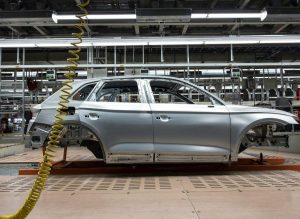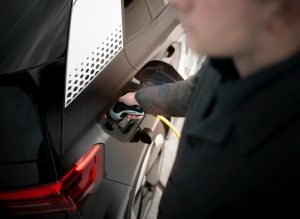The rise of electric vehicles (EVs) has been celebrated as a game-changer for sustainable transportation. By reducing reliance on fossil fuels, EVs promise a cleaner, greener future. However, their production raises critical ethical concerns, particularly regarding the mining and sourcing of rare earth metals like lithium, cobalt, and nickel. These materials are essential for manufacturing EV batteries and motors, but their extraction and supply chains often come with significant environmental and human costs.
Exploring the ethical dilemmas of rare earth metals in EV production reveals a complex challenge: how to balance the benefits of EVs with the moral responsibilities of ensuring fair and sustainable practices.
What Are Rare Earth Metals and Why Are They Important?
Rare earth metals are a group of 17 chemically similar elements essential for various high-tech applications, including EV batteries, motors, and electronic systems. Key materials like lithium, cobalt, and nickel are crucial for lithium-ion batteries, which power most EVs.
- Lithium: Provides high energy density and longevity for batteries.
- Cobalt: Enhances battery stability and prevents overheating.
- Nickel: Increases battery capacity and range.
Without these metals, modern EV technology would not exist. However, their extraction and supply raise ethical concerns.
Environmental Concerns
Mining rare earth metals is resource-intensive and environmentally destructive. The process often involves open-pit mining, which can devastate ecosystems and contaminate soil and water sources.
- Carbon Emissions: Extracting and processing these metals require significant energy, often sourced from fossil fuels, which contributes to greenhouse gas emissions.
- Toxic Waste: Mining generates waste that can leak harmful chemicals, such as sulfuric acid, into surrounding areas, endangering local wildlife and communities.
- Resource Depletion: The finite nature of rare earth metals raises questions about long-term sustainability as demand for EVs grows.
Human Rights Issues
Rare earth metal mining is often concentrated in developing countries, where regulations may be lax or poorly enforced. This has led to severe human rights violations in certain regions.
- Child Labor: In countries like the Democratic Republic of Congo, where over 60% of the world’s cobalt is mined, child labor is a documented issue. Miners, including children, work in dangerous conditions with little to no safety measures.
- Exploitation: Local communities often see minimal economic benefit from mining operations, as profits are typically exported to multinational corporations.
- Health Risks: Prolonged exposure to toxic materials used in mining can lead to chronic health issues for workers and nearby residents.
Economic and Geopolitical Implications
The demand for rare earth metals has sparked geopolitical tensions, as countries with large reserves wield significant influence over global supply chains. For example, China controls a significant portion of the world’s rare earth metal processing, giving it substantial leverage in international trade.
This concentration of resources raises concerns about supply chain stability and the ethical implications of relying heavily on countries with questionable labor and environmental practices.
The Role of Automakers
Automakers play a critical role in addressing the ethical challenges associated with rare earth metals. Many companies are taking steps to improve transparency and sustainability in their supply chains:
- Recycling Initiatives: Brands like Tesla and BMW are investing in battery recycling technologies to reduce the need for virgin materials.
- Ethical Sourcing: Automakers are partnering with certified suppliers that adhere to fair labor and environmental standards.
- Alternative Materials: Research into cobalt-free or less resource-intensive battery chemistries, such as solid-state batteries, is gaining momentum.
These efforts demonstrate that the automotive industry recognizes its responsibility to mitigate the negative impacts of rare earth metal sourcing.
Consumer Responsibility
Consumers also have a role to play in encouraging ethical practices in EV production. By choosing automakers committed to sustainable and fair supply chains, drivers can support companies that prioritize ethical sourcing. Additionally, extending the lifespan of EV batteries through proper maintenance and recycling can help reduce demand for new materials.
Innovative Solutions for a Sustainable Future
The ethical challenges surrounding rare earth metals are driving innovation across industries. Promising solutions include:
- Urban Mining: Recycling metals from old electronics and batteries can reduce dependence on mining and recover valuable materials.
- Improved Regulations: Stricter international standards for mining practices can help ensure environmental protection and fair labor conditions.
- Alternative Energy Storage: Advances in hydrogen fuel cells and next-generation battery technologies may reduce reliance on rare earth metals in the future.
A Balanced Perspective
The ethics of rare earth metals in EV production highlight the complexities of transitioning to sustainable transportation. While EVs represent a significant improvement over traditional fossil fuel vehicles, the environmental and human costs of mining cannot be ignored.
Striking a balance between innovation and responsibility requires collaboration among automakers, governments, and consumers. By adopting sustainable practices, investing in alternative technologies, and ensuring ethical supply chains, the automotive industry can move toward a future where EVs truly align with their promise of a greener, more equitable world.
Conclusion
The transition to electric vehicles is a vital step toward combating climate change, but it comes with challenges that demand attention. The ethical concerns surrounding rare earth metals remind us that sustainability isn’t just about reducing emissions—it’s about creating a system that respects both the environment and the people involved.
As the industry evolves, transparency, innovation, and global cooperation will be key to ensuring that EVs drive not only cleaner roads but also a fairer, more sustainable future for everyone.













